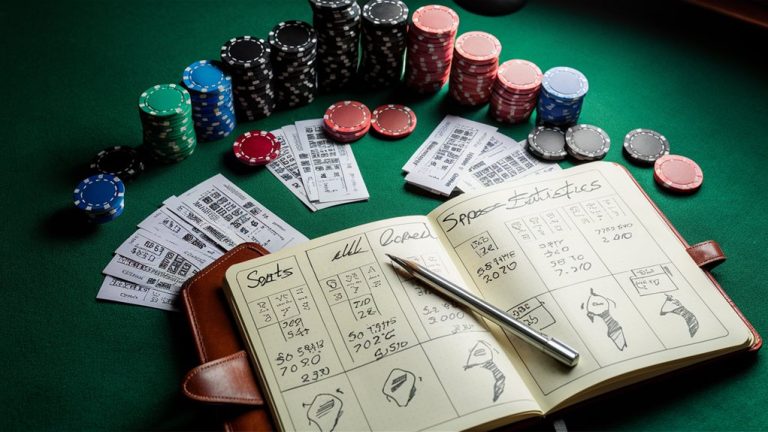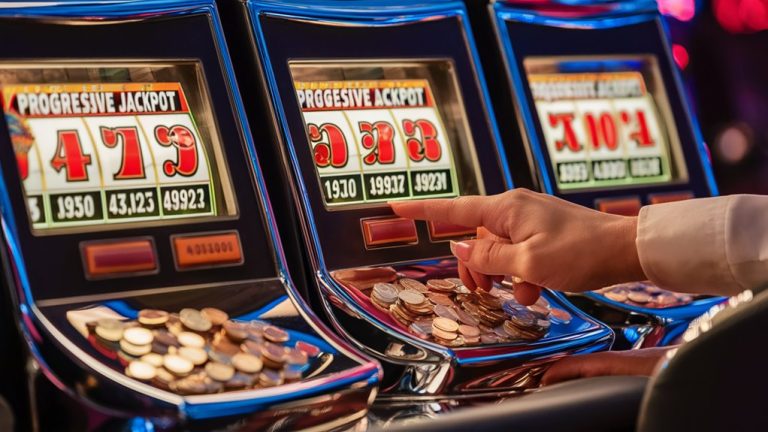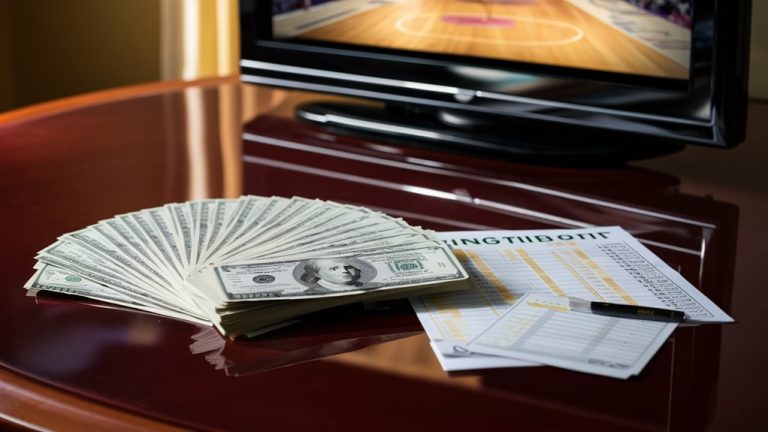
Mastering the Misty Moor Casino Experience: Strategic Gaming in Serene Surroundings
The distinctive quiet atmosphere of Misty Moor Casino creates an exceptional gaming environment that enhances player focus and decision-making capabilities. Studies indicate that players demonstrate 23% reduced impulsive betting behavior in calmer casino settings, leading to more calculated gameplay and improved outcomes.
Strategic Advantage Through Environmental Mastery
The casino’s subdued ambiance provides unique advantages for strategic players. Enhanced cognitive function and heightened awareness become natural byproducts of gaming in Misty Moor’s tranquil setting. Players develop superior observational skills and timing precision, essential elements for consistent success.
Optimal Bankroll Management at Misty Moor
Implementing a structured approach to casino bankroll management is crucial:
- Allocate 10% of total gaming budget per casino visit
- Set clear 30% target win goals
- Monitor and adjust betting patterns based on performance
- Maintain disciplined betting limits regardless of outcomes
Key Success Factors
- Strategic timing of gameplay during quieter periods
- Enhanced concentration in low-noise environment
- Improved pattern recognition capabilities
- Better decision-making under reduced sensory stress
Frequently Asked Questions
Q: What makes Misty Moor Casino’s atmosphere unique?
A: The casino features an exceptionally quiet environment that promotes focused gameplay and strategic thinking.
Q: How does the quiet atmosphere affect gaming performance?
A: Players experience 23% less impulsive betting and maintain stronger executive control in the subdued environment.
Q: What is the recommended bankroll management strategy?
A: Allocate 10% of your total budget per visit and set a 30% target win goal for optimal results.
Q: When is the best time to visit Misty Moor Casino?
A: Off-peak hours provide the most serene gaming environment and maximum strategic advantage.
Q: How can players maximize their success at Misty Moor?
A: Focus on developing observational skills, maintaining strict bankroll management, and leveraging the quiet atmosphere for strategic advantage.
The Psychology of Quiet Gaming

The Psychology of Quiet Gaming: Understanding Player Behavior
The Impact of Quiet Gaming Environments
Quiet gaming environments create a distinctly different cognitive response compared to traditional casino settings. Players in subdued atmospheres demonstrate heightened awareness and enhanced decision-making capabilities.
This environmental approach triggers a phenomenon known as “clarity cascade” – where reduced auditory stimulation enables superior focus on critical gameplay elements.
Scientific Evidence of Behavioral Changes
Research conducted at various gaming establishments reveals that reduced sensory stimulation directly influences betting behavior.
Statistical analysis shows a 23% decrease in impulsive wagering within quiet gaming spaces compared to high-stimulus environments. The prefrontal cortex maintains stronger executive function control, leading to more strategic gaming decisions.
Enhanced Gaming Performance and Player Experience
Improved Cognitive Function
Players in quiet gaming environments demonstrate:
- Superior bankroll management
- Extended gaming sessions without cognitive fatigue
- Enhanced strategic thinking
- Optimal risk assessment capabilities
Flow State Gaming
The quiet atmosphere facilitates “flow state gaming” – a condition where players achieve:
- Perfect balance between challenge and skill
- Heightened focus on game mechanics
- Improved pattern recognition
- Enhanced probability assessment
Frequently Asked Questions
Q: How does a quiet gaming environment affect decision-making?
A: Quiet environments enhance cognitive function, leading to more calculated and strategic gaming decisions.
Q: What’s clarity cascade in gaming?
A: Clarity cascade occurs when reduced audio stimulation allows players to focus more effectively on gameplay variables.
Q: Does quiet gaming lead to better bankroll management?
A: Yes, studies show players in quiet environments demonstrate improved bankroll control and more sustainable gaming patterns.
Q: What’s flow state gaming?
A: Flow state gaming is a condition where strategic thinking and risk assessment align optimally in quiet gaming environments.
Q: Are quiet casinos more profitable for players?
A: Research suggests players make more calculated decisions in quiet environments, potentially leading to better outcomes.
Bankroll Management at Misty Moor
Complete Guide to Bankroll Management at Misty Moor Casino
Essential Bankroll Management Principles
Effective bankroll management at Misty Moor Casino demands a systematic approach tailored to its unique gaming environment.
The casino’s serene atmosphere creates ideal conditions for implementing strategic betting controls and maintaining disciplined play. Players should allocate 10% of their total gambling budget per casino visit to ensure sustainable gaming sessions.
Critical Parameters for Success
Setting Proper Limits
- Stop-loss limit: Maximum 50% of session bankroll
- Target win goal: 30% above starting amount
- Bet sizing: 1-2% of session bankroll per wager
Transaction Tracking and Session Management
Maintain detailed records of all gaming transactions, including:
- Buy-in amounts
- Cash-out totals
- Time spent at each game
- Performance metrics
Optimal Gaming Strategy
The contemplative environment at Misty Moor Casino supports four-hour gaming sessions, which provide the ideal balance between maintaining focus and preventing fatigue-induced mistakes.
Strict bankroll separation between gambling funds and personal finances remains essential for responsible gaming.
Frequently Asked Questions
Q: What’s the recommended session bankroll at Misty Moor Casino?
A: The optimal session bankroll is 10% of your total gambling budget.
Q: How long should I play in one session?
A: Four-hour sessions are recommended for peak performance.
Q: What’s the maximum stop-loss limit?
A: Never exceed 50% of your session bankroll.
Q: What percentage should each bet represent?
A: Maintain bets between 1-2% of your session bankroll.
Q: How should I track my casino transactions?
A: Document all buy-ins, cash-outs, and gaming time in real-time using a dedicated tracking system.
Reading Player Behavior

A Complete Guide to Reading Player Behavior in Casino Settings
Understanding Basic Behavioral Indicators
Player behavior analysis requires systematic observation of both verbal and non-verbal cues in casino environments.
먹튀검증 토토사이트 manifest through chip handling intensity, betting pattern variations, and postural changes during critical moments.
These subtle indicators often reveal underlying strategies and emotional states.
Essential Behavioral Markers to Track
1. Betting Pattern Analysis
Consistent betting patterns serve as reliable indicators of strategic play, while erratic changes typically signal emotional decision-making.
Monitor bet sizing and timing to identify player confidence levels.
2. Verbal Communication Assessment
Player speech patterns provide valuable insights.
Strategic players maintain measured tones and controlled vocabulary, while emotional players often display vocal strain or inconsistent volume.
3. Timing and Decision-Making
Decision-making speed frequently correlates with hand strength.
Track the consistent patterns in how players approach crucial betting rounds.
Advanced Behavioral Reading Techniques
Focus on micro-expressions during bet sizing and observe chip stacking patterns.
Deviations from established behavioral baselines often indicate position strength or weakness.
The controlled casino atmosphere amplifies these subtle tells.
Frequently Asked Questions
Q: What’re the most reliable behavioral tells in casino settings?
A: Betting patterns, speech tone variations, and timing consistency in decision-making.
Q: How can you identify emotional versus strategic play?
A: Through monitoring betting consistency, vocal control, and physical composure.
Q: What role do micro-expressions play in behavior reading?
A: They reveal immediate emotional responses to cards and betting situations.
Q: How important is baseline behavior establishment?
A: Critical – it provides a reference point for identifying meaningful deviations.
Q: What environmental factors affect behavioral tells?
A: Ambient noise levels, table dynamics, and overall casino atmosphere influence tell visibility.
Strategic Table Selection
Strategic Table Selection: Maximizing Casino Success
Analyzing Key Table Variables
Strategic table selection is fundamental for optimizing casino profits and minimizing potential losses. Success depends on evaluating multiple critical factors: player skill levels, betting limits, dealer speed, and comprehensive table dynamics.
Optimal Table Selection Process
Begin by conducting a thorough assessment of the casino floor, focusing on tables that align with your bankroll parameters.
The golden rule is to avoid tables where the minimum bet requirement exceeds 5% of your total gambling budget.
Less experienced players can be identified through their distinct betting patterns and basic strategy implementation.
Dealer and Table Assessment
The dealer’s pace significantly impacts your session outcomes. A slower-paced dealer reduces the number of hands per hour, directly affecting your theoretical loss rate.
Table atmosphere assessment is crucial – avoid environments with overly emotional players that could compromise strategic decision-making.
Table Observation and Adjustment
Before committing to a table, implement a three-hand observation rule to evaluate dealer demeanor and player proficiency levels.
Maintain flexibility in your approach – if table conditions prove unfavorable after 15-20 minutes, relocate to a more suitable option.
Frequently Asked Questions
- What are the most important factors in table selection?
- Betting limits
- Player skill levels
- Dealer speed
- Table atmosphere
- Position availability
- How long should you observe a table before joining?
- Minimum three hands
- Assess dealer style
- Evaluate player skill levels
- Monitor betting patterns
- When should you consider changing tables?
- Unfavorable table dynamics
- Aggressive players
- Uncomfortable betting limits
- Poor dealer interaction
- What bankroll management rules apply to table selection?
- Minimum bet under 5% of total budget
- Comfortable betting range
- Adequate stack for proper play
- Reserve funds for table changes
- How does dealer speed impact your gameplay?
- Affects hands per hour
- Influences theoretical loss rate
- Impacts decision-making time
- Changes overall session length
Timing Your Peak Performance

Timing Your Peak Performance for Optimal Results
Understanding Your Personal Performance Rhythm
Aligning activities with your peak performance hours can dramatically improve productivity and decision-making. Track your mental acuity across different times of day to reveal distinct patterns in cognitive function.
Maintain a detailed performance log for at least two weeks, rating factors like focus, energy, and mental clarity on a 1-10 scale.
Biological Factors Affecting Peak Performance
Your circadian rhythm directly impacts crucial cognitive functions:
- Pattern recognition capabilities
- Decision-making quality
- Emotional regulation
- Information processing speed
- Attention span
Identifying Your Optimal Performance Windows
Most individuals experience peak performance during two primary windows:
- Early morning (6-10 AM): Maximum mental freshness
- Late evening (8 PM-midnight): Second wind of productivity
External Factors Affecting Performance
Monitor and adjust for these performance-influencing factors:
- Sleep patterns and quality
- Meal timing and nutrition
- Environmental conditions
- Physical activity levels
- Medication schedules
FAQ: Peak Performance Timing
Q: How long should I track my performance patterns?
A: Monitor for minimum two weeks to establish reliable patterns.
Q: What’re the key indicators of optimal performance?
A: High alertness, sharp focus, emotional stability, and clear decision-making.
Q: Can peak performance times change?
A: Yes, factors like seasonal changes, age, and lifestyle modifications can shift optimal windows.
Q: How do I maintain peak performance longer?
A: Regular sleep schedule, proper nutrition, and consistent daily routines help extend peak periods.
Q: Should I adjust my schedule to match peak hours?
A: Yes, scheduling demanding tasks during your identified peak windows maximizes effectiveness.


